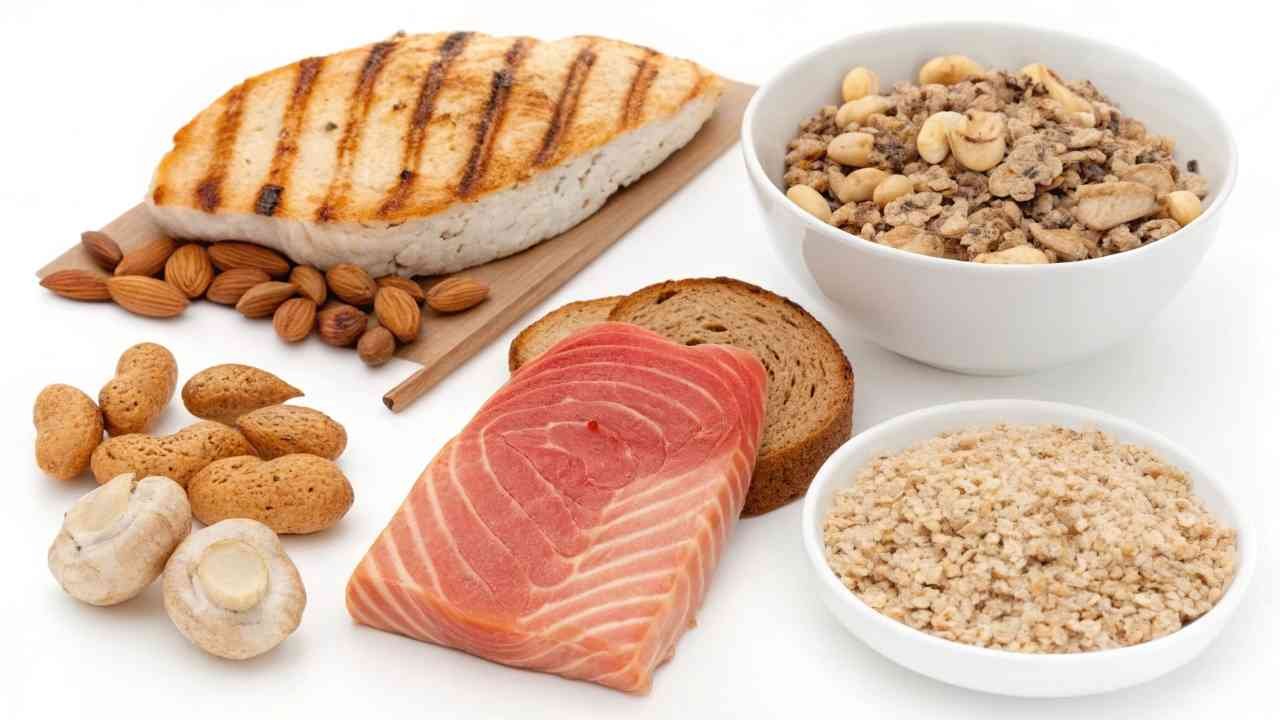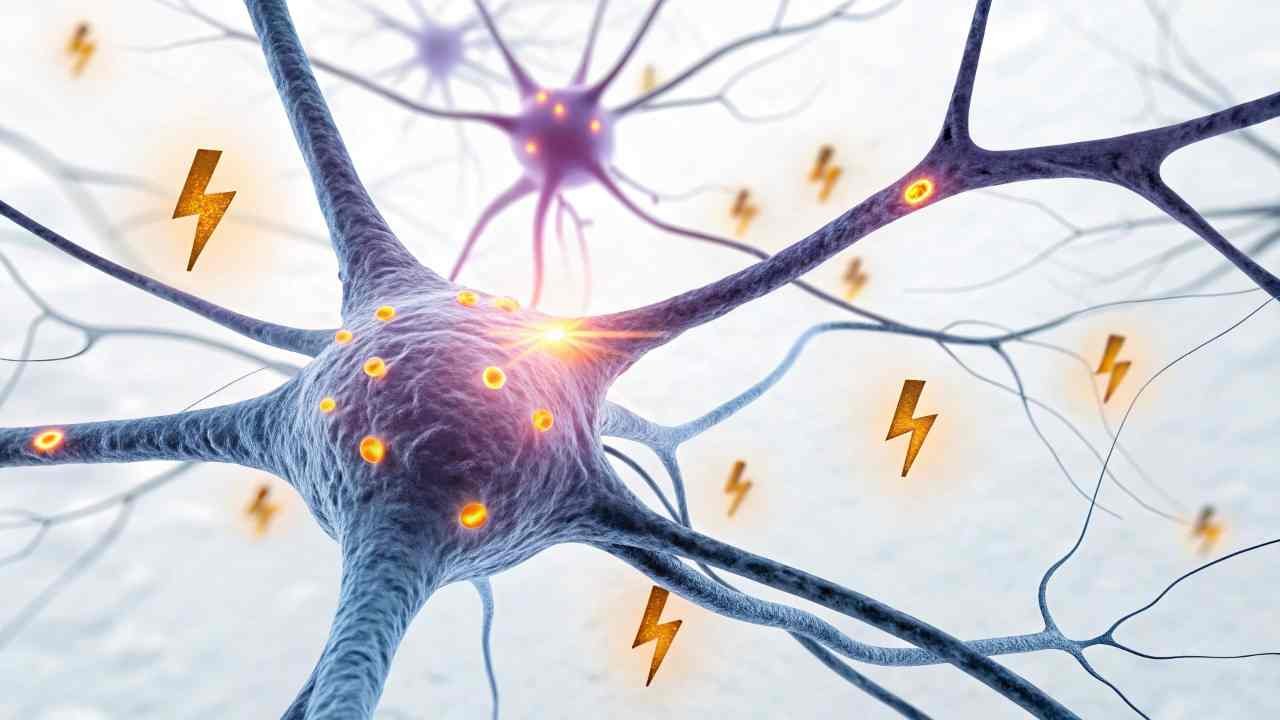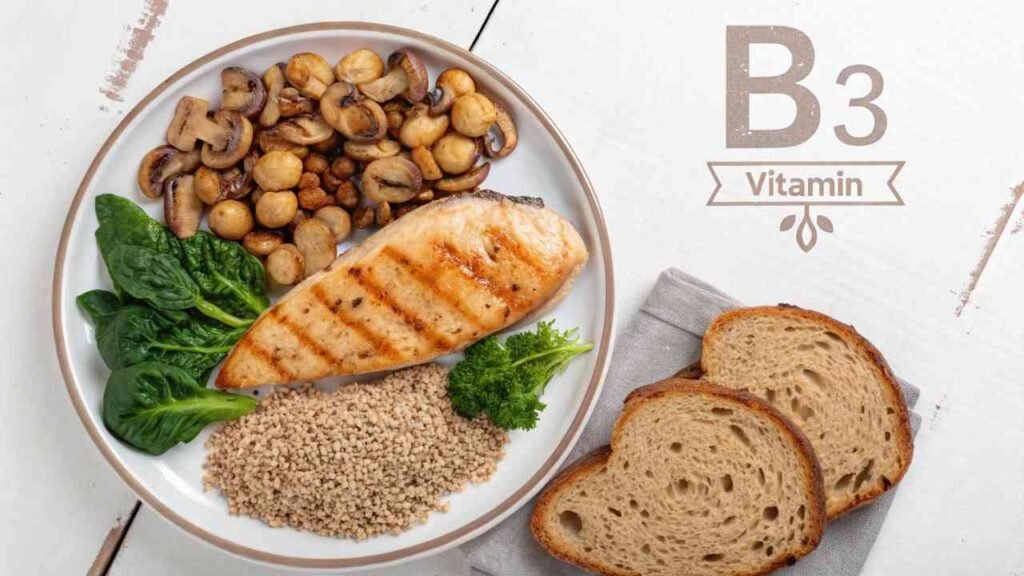Confused about Vitamin B3? Wondering why it's in your food and why you need it? This guide makes understanding niacin simple and clear.
Consumers should know Vitamin B3 (niacin) is vital for converting food to energy, supporting nerve function, and maintaining healthy skin. A balanced diet usually provides enough.
In my business at FINETECH, we supply vitamins like niacin to food producers. Clients need to know the ingredients they buy are high quality and meet health standards. Understanding B3 is crucial for everyone, so let's cover the basics.
What common foods are naturally good sources of Vitamin B3?
Want to get more Vitamin B3 from your food? Wondering where to find it? Let's look at the best natural sources for niacin.
Good sources of Vitamin B3 include poultry (chicken, turkey), fish (tuna, salmon), and lean meats. Plant-based options are peanuts, whole grains, and mushrooms. Many breads and cereals are also fortified.

Getting enough niacin is usually easy with a varied diet. Animal products are particularly rich sources.
- Top Animal Sources: Chicken breast, canned tuna, and lean beef are excellent.
- Top Plant Sources: Peanuts, brown rice, and avocados are good choices.
- Fortified Foods: Many breakfast cereals, breads, and flours have niacin added back in after processing. This is a very common source for many people.
A diet with a mix of these foods will easily meet most people's daily needs.
How does cooking or food processing change the Vitamin B3 content in meals?
Worried cooking destroys the B3 in your food? Wondering if you're actually getting the nutrients you think? Let's check how cooking affects niacin.
Vitamin B3 is stable in heat, so it survives most cooking. However, it is water-soluble, so it can be lost when you boil food and throw away the water.

The biggest factor for B3 loss1 is water, not heat.
- Good Methods: Roasting, baking, and stir-frying preserve niacin well because they use little to no water.
- Okay Methods: Steaming is better than boiling because the food has less contact with water.
- Poor Method: Boiling can cause a lot of niacin to leach into the cooking water. If you discard the water, you lose the vitamin.
- Smart Tip: If you do boil niacin-rich foods, use the cooking liquid to make a soup or sauce to retain the nutrients.
Cooking Method Retention Summary:
| Method | Niacin Retention | Why? |
|---|---|---|
| Roasting/Baking | Excellent | Dry heat, no water loss. |
| Stir-frying | Excellent | Quick, uses minimal water. |
| Steaming | Good | Less contact with water than boiling. |
| Boiling | Poor | Leaches into discarded water. |
Do certain lifestyles or diets increase the body's need for Vitamin B3?
Think your diet is enough? Some lifestyles or health issues can actually increase your demand for Vitamin B3. Let's see who might need more.
Yes, high alcohol consumption is the biggest factor that increases B3 needs. Very restrictive diets, malabsorption disorders, and intense athletic training can also raise demand.

While most people get enough, certain groups should be more mindful.
- High Alcohol Intake2: This is the top risk factor. Alcohol interferes with B3 absorption and increases its use by the body.
- Restrictive Diets3: Diets very low in protein limit the body's ability to make its own niacin from tryptophan. Diets relying on untreated corn can also be a risk.
- Athletes: High energy use increases the demand for B3 because it's essential for metabolism.
- Malabsorption Conditions4: Diseases like Crohn's or celiac disease can impair nutrient absorption.
If you are in one of these groups, focusing on a niacin-rich diet is especially important.
What are some early signs that might indicate a low Vitamin B3 level?
Feeling tired or seeing strange skin issues? These might be early signs of low Vitamin B3 levels. Let's learn the common warnings.
Early signs of low Vitamin B3 can include fatigue, indigestion, canker sores, a swollen red tongue, and a skin rash on sun-exposed areas that looks like a sunburn.

Severe deficiency (pellagra) is rare today, but mild deficiency can happen. The signs can be vague, so it's good to know what to look for.
Common early symptoms:
- General: Fatigue and weakness.
- Skin: A symmetrical, reddish rash on the neck, hands, or feet after sun exposure.
- Digestive: Indigestion, vomiting, or canker sores.
- Oral: A bright red and swollen tongue (glossitis).
- Mental: Irritability, poor concentration, or anxiety.
These symptoms can have many causes. It is always best to see a doctor for a proper diagnosis instead of guessing.
Why is Vitamin B3 important for maintaining healthy nerve function?
Wondering how vitamins impact your brain? Why is B3 so crucial for nerves? Let's explore its vital role in nerve health.
Vitamin B3 is essential for nerves because it forms the coenzymes NAD and NADP. These helpers are critical for producing energy in nerve cells and for repairing nerve cell damage.

Our nervous system depends heavily on B3 for two main jobs. It creates the "helper molecules" NAD and NADP, which are like spark plugs for our cells.
- Energy Production: Nerve cells use huge amounts of energy. NAD is essential for the process that turns glucose into energy. Without enough NAD, nerve cells can't function properly.
- Cell Repair and Protection5: Nerve cells need to last a lifetime. NAD helps power the enzymes that repair damage to our DNA. This keeps the nerve cells healthy and protects them from dying early.
This dual role in both fueling and repairing neurons is why a lack of B3 can have serious neurological consequences.
Conclusion
Vitamin B3 (niacin) is crucial for energy, nerve health, and skin. Found in meats, fish, and fortified foods, a balanced diet is the best way to ensure you get enough.
-
Understanding the causes of B3 loss can help you choose better cooking methods to preserve nutrients. ↩
-
Understanding the impact of alcohol on B3 absorption can help you make informed dietary choices. ↩
-
Learn how your diet can influence niacin levels and overall health, especially if you're on a restrictive diet. ↩
-
Explore how conditions like Crohn's or celiac disease can affect your nutrient intake and health. ↩
-
Understanding this will highlight the importance of NAD in maintaining nerve cell longevity and health. ↩


